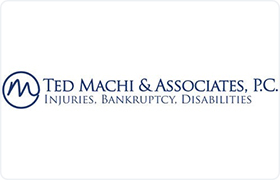Carrollton Bankruptcy & Debt Lawyer, Texas
Sponsored Law Firm
-
 x
x

Click For More Info:
-
Machi & Associates, P.C.
1521 North Cooper Street Suite 550 Arlington, TX 76011» view mapAccident & Injury, Bankruptcy, Social Secuirty We Fight So You Don't Have To
Our professional team of attorneys and staff provide the experience and expertise needed to effectively handle your case.
800-804-0771
Eric J. Engel
✓ VERIFIEDEric attended both Gonzaga and Seattle University Schools of Law. During law school, Eric earned a spot on the prestigious Law Review team where he be... (more)
Andrew A. Dunlap
Originally from Denver Colorado, Andrew Dunlap moved to Kansas City and attended Northwest Jr. High and Wyandotte High School. After graduating, he we... (more)
Marcus Leinart
✓ VERIFIEDMarcus is dedicated to helping people who have experienced financial difficulties as a result of life’s unexpected hardships. His law practice focus... (more)
 Ted Machi Arlington, TX
Ted Machi Arlington, TX Practice AreasExpertise
Practice AreasExpertise



